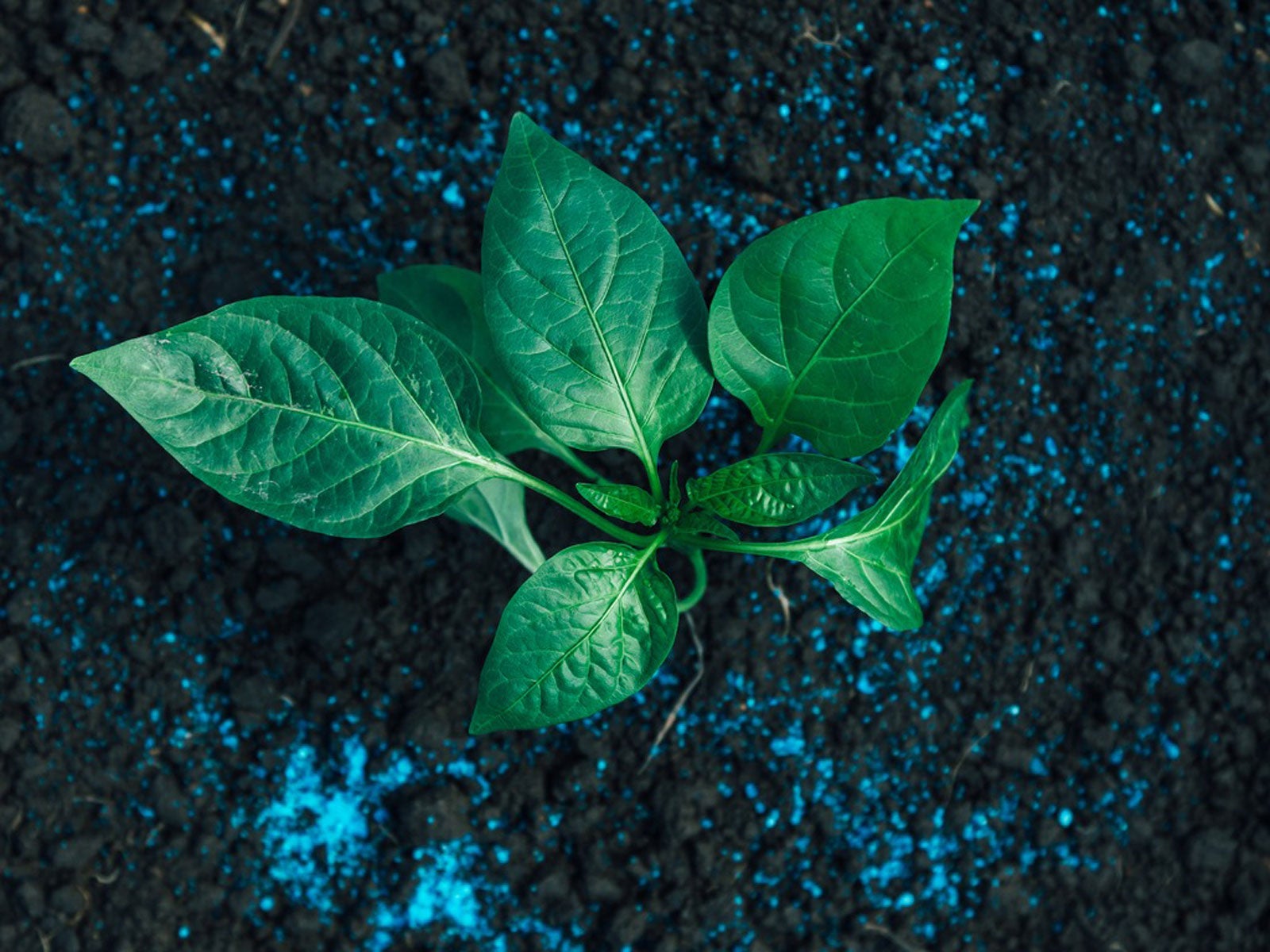Best Fertilizers for Peppers: Increase Development and Taste Naturally
Best Fertilizers for Peppers: Increase Development and Taste Naturally
Blog Article
How Fertilizers Play a Critical Duty in Cultivating Abundant and healthy Pepper Crops
Fertilizers serve as the foundation of successful pepper cultivation, supplying a strategic approach to nurturing the soil and fostering optimum plant growth. The intricate dancing in between essential nutrients and the pepper plants' physical processes emphasizes the essential role that plant foods play in making sure an abundant harvest.
Significance of Nutrient-Rich Plant Foods
The use of nutrient-rich fertilizers plays an essential role in boosting the performance and high quality of pepper crops in modern-day agricultural methods. Pepper plants require a balanced combination of important nutrients to prosper and create high returns of top quality fruits. Nitrogen, potassium, and phosphorus are key nutrients that are essential for the development and advancement of pepper plants. Nitrogen help in leafy environment-friendly growth and general plant vitality, phosphorus sustains origin advancement and blossom manufacturing, while potassium contributes to illness resistance and fruit top quality.
Poor levels of these nutrients can cause stunted development, decreased returns, and sensitivity to illness (best fertilizers for peppers). Nutrient-rich plant foods offer a targeted option to make certain that pepper plants get the needed components for optimum development and efficiency. Furthermore, these fertilizers help improve dirt fertility over time, producing a sustainable environment for lasting pepper growing
Enhancing Plant Growth and Development
To optimize plant development and development in pepper plants, strategic application of nutrient-rich fertilizers is important. Fertilizers play an essential duty in improving the overall health and wellness and productivity of pepper plants by providing them with crucial nutrients that might be lacking in the soil.
In enhancement to these macronutrients, micronutrients such as iron, magnesium, and zinc are additionally vital for the appropriate performance of various plant procedures. Iron, for circumstances, is required for chlorophyll manufacturing, which is essential for photosynthesis and general plant growth. Zinc plays a vital duty in enzyme activity and hormone synthesis, affecting plant development and development at a cellular degree. Magnesium is important for the formation of chlorophyll and general power transfer within the plant.

Boosting Illness Resistance With Plant Foods
By strategically incorporating targeted plant foods, farmers can reinforce the condition resistance of pepper plants, ensuring ideal plant wellness and performance. Fertilizers including crucial nutrients like nitrogen, phosphorus, and potassium play a vital duty in reinforcing pepper plants' body immune systems, making them more resilient to various illness. Nitrogen, as an example, help in the manufacturing of healthy proteins that are essential for plant defense reaction. Phosphorus contributes to root development, allowing plants to much better absorb nutrients and water, thus enhancing their ability to fend off diseases. Potassium manages procedures that boost total plant health and wellness, making peppers extra durable versus virus.

Making The Most Of Pepper Yield Via Fertilization
Utilizing a well balanced fertilization approach is vital to attaining dig this maximum pepper yield and making certain ideal plant efficiency. By providing peppers with the ideal nutrients at the best time, farmers can significantly boost their yield potential. Nitrogen, potassium, and phosphorus are essential aspects for pepper growth, with nitrogen helping in fallen leave and stem advancement, phosphorus sustaining root development and flower development, and potassium promoting total plant health.
To make the most of pepper return, it is crucial to carry out dirt tests to identify existing vitamins and mineral levels and determine click this link any kind of deficiencies that need to be resolved. Based on these results, farmers can establish a tailored fertilization plan that fulfills the details needs of their pepper crops. Furthermore, correct fertilization techniques such as split applications throughout the expanding season can make sure continuous nutrient accessibility for the plants.

Sustainable Fertilizer Practices for Peppers
In thinking about lasting plant food techniques for peppers, it is vital to concentrate on lasting dirt health and ecological stewardship in conjunction with optimizing crop efficiency. Sustainable plant food methods intend to enhance or preserve soil fertility while reducing negative ecological effects. One crucial technique is making use of natural plant foods such as garden compost, manure, or cover plants, which not just supply crucial nutrients to the peppers yet additionally add to dirt framework and microbial task. These organic choices assist build raw material in the dirt, boosting its capability to maintain water and nutrients, consequently supporting long-lasting crop health and strength.
In addition, accuracy farming methods, such as dirt screening and targeted nutrient applications, can help maximize fertilizer usage, making certain that peppers obtain the nutrients they need without excess overflow into rivers. This not just benefits the environment by lowering contamination but additionally saves expenses for farmers by reducing waste. By adopting sustainable plant food methods, pepper farmers can secure the health of their crops, dirt, and surrounding ecosystems for future generations.
Final Thought
In conclusion, plant foods are important for growing healthy and plentiful pepper plants. best fertilizers for peppers. They provide required nutrients for plant growth and growth, boost illness resistance, and take full advantage of return. By implementing lasting plant food techniques, farmers can make certain the long-term health of their pepper crops and add to an extra efficient and environmentally-friendly farming system
The detailed dance between necessary nutrients and the pepper plants' physical procedures emphasizes the pivotal function that plant foods play in making certain a bountiful harvest.To optimize plant growth and advancement in pepper plants, critical application of nutrient-rich plant foods is vital. Plant foods play an essential role in improving the general health and wellness and performance of pepper plants by giving them with essential nutrients that may be lacking in the soil.By tactically integrating targeted fertilizers, farmers can reinforce the illness resistance of pepper crops, guaranteeing ideal plant health and wellness and efficiency. Fertilizers including essential nutrients like potassium, nitrogen, and phosphorus play a crucial function in strengthening pepper plants' immune systems, making them much more durable to various diseases.
Report this page